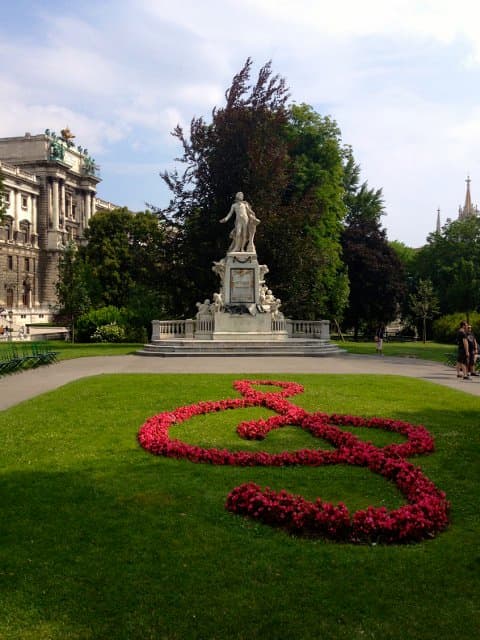Throughout the history of classical music, there have been some cities that have attracted musicians and audiences and, through this, have become centres of attention and key locations in music-making progress. If there is often more than one reason for these cities being attractive — and they often are on many levels, not just a musical or artistic one, but also economic and industrial — they have nevertheless shaped the history of music and, consequently, the music that has been produced there.

© explorica.com
Vienna has been hugely influential in the history of classical music. From having hosted Haydn, Mozart and Beethoven, to being the birthplace of Schubert and the centre of the innovations of the Second Viennese School. If it still holds musical institutions and important orchestras, it is today less of a bustling musical centre but still carries its important history.
London is strongly associated with English composers Purcell, Elgar and Britten. As an artistic centre, it has attracted the likes of Handel, Mozart, Mendelssohn and Bartók. Many have also created works in its honour, such as Haydn and his London Symphonies, or Vaughan Williams’ London Symphony.
Haydn: Symphony No. 104 – London (Proms 2012)
Milan’s Teatro alla Scala has been the home of opera premieres since its own opening night, from Salieri’s Europa riconosciuta to Bellini’s Norma, Verdi’s Nabucco and Otello, Puccini’s Madame Butterfly and Turandot, and the list keeps going to the 21st century, with Vacchi’s Teneke and Francesconi’s Quartett.
Paris has played a key role in the development of classical music too, from Lully, Charpentier and Rameau and the courts of Versailles, to the revolutionary works of Berlioz, Satie, Debussy and Ravel. Furthermore, it has throughout the centuries, attracted international composers, including Chopin, Verdi and Franck.
Mozart: Symphony No. 31 in D Major: “Paris” K. 297
The imperial city of Saint Petersburg has brought an almost endless list of Russian composers to fame; from Mussorgsky, Rimsky-Korsakov, Glinka and Balakirev who worked there, to Borodin, Glazunov, Stravinsky and Shostakovich who were born here, not to mention Rubinstein‘s conservatory which saw musicians from Tchaikovsky to Prokofiev.
New York is also one of the most important musical metropolises. From Gershwin to Ives, Varèse, Bartók, and Bernstein, it has been an influential melting pot of cultures and musical ideas. The minimalism of Reich and Glass is a direct result of this city’s influence.
Steve Reich’s Different Trains with London Contemporary Orchestra
Some other less central to the development of music, yet of considerable importance, cities include: Salzburg, not only important for being the birthplace of Mozart, but also the place where the first opera was performed outside of Italy. Karajan was born here too, and each year, the Salzburg Festival maintains the legacy of the city’s musical history. Leipzig is also strongly associated with Bach, and Wagner who was born here. Both Schumann and Mendelssohn also spent considerable time there. Prague can pride itself on having hosted some of the most important composers of the 19th century: Smetana, Dvořák and Janáček. From Des Prez and Palestrina and the Roman School to Bizet and Berlioz, who made it their home, and Puccini, who made it his Tosca’s home, Rome has also been an important Italian musical city. Berlin houses the Philharmonie and the Berlin Philharmonic Orchestra which is undoubtedly tied to Karajan. The Hungarian capital of Budapest has been the home to two of the most important European composers too, Liszt and Bartók.
Because of the globalisation of the world and the rise of the internet, cities have slowly lost their importance in being cradles for art creation. If some still remain important to this day — London and New York, for instance, still attract many musicians and artists —, it seems to matter less where the musicians decide to install themselves, and rather who they wish to be connected with and what sort of relationships they prefer to build. There are of course positive outcomes to this — the fact that artists from different sides of the world can meet in a fraction of seconds — and negative ones too — such as the loss of genuine human interaction and the influence of the environment on the artist.
For more of the best in classical music, sign up for our E-Newsletter



